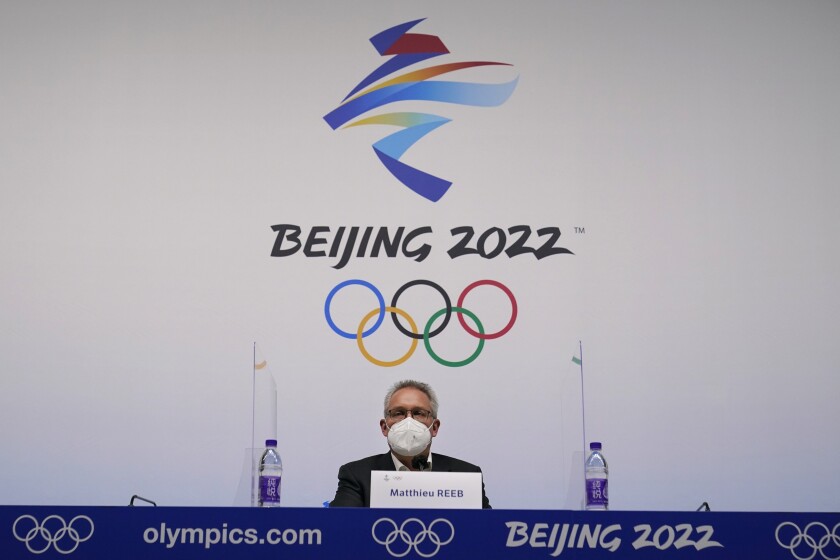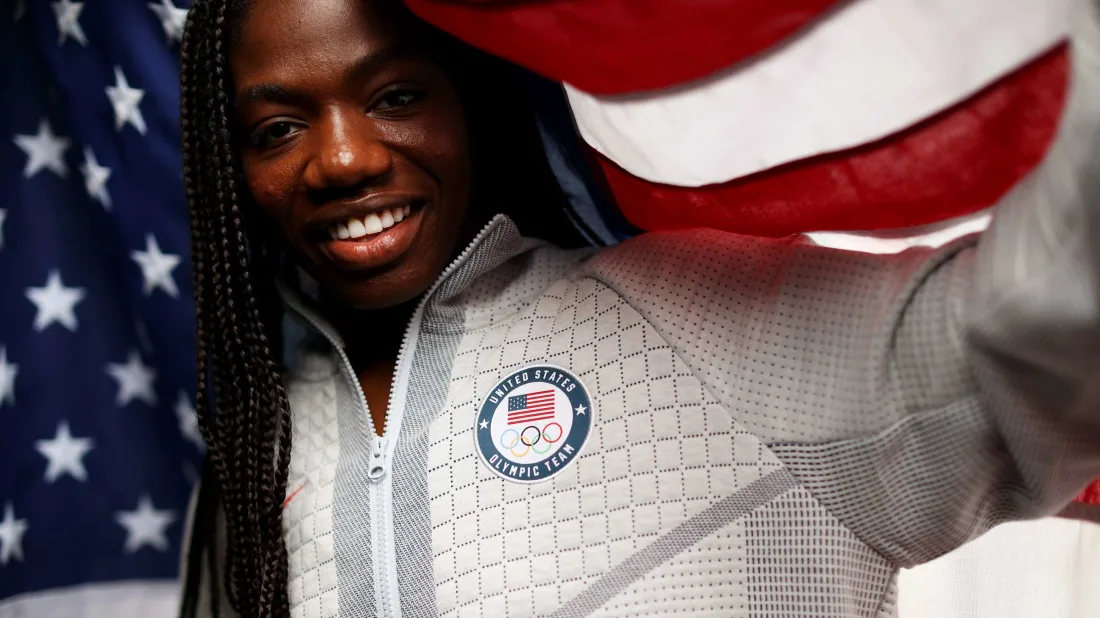
So when that substance, trimetazidine, was found in Valieva’s system, it’s assumed that some coach, doctor or whomever in Russia is responsible for the skating sensation being hopped up on heart pills.
This is the same Russia, of course, that ran a sophisticated, state-sponsored, performance-enhancing drug operation at the 2014 Olympics, causing the IOC to ban it from three subsequent Games, including the current one in Beijing.
Russia cheated. Russia cheats.
Russia runs a system where someone is doping kids.
Yet no one seems to care. Certainly no one is going to stop it from abusing children, let alone the system.
Despite the positive test, Valieva will compete in the women’s individual competition Tuesday. She is so much better than everyone else, she’ll be the considerable favorite. Likewise, her performance in last week’s team event, where she led Russia to gold, will stand.
In an insult to intelligence, the Court of Arbitration for Sport ruled Monday that Valieva cannot be provisionally suspended even though a test she took in December of 2021 just came back showing trimetazidine in her system. The case will still proceed. She could be retroactively disqualified months from now, but the Olympic moment will be gone.
The three-person panel based the decision on Valieva being a so-called “Protected Person,” which means she is too young to know what is happening to her. Well, maybe she doesn’t. Or maybe she does. Either way, the IOC, the International Skating Union and the World Anti-Doping Association all claim that the “Protected Person” label isn’t applicable when considering provisional suspensions.
The panel also followed the Russian Anti-Doping Association’s argument that since the lab in Sweden didn’t process the test for six and a half weeks, Valieva doesn’t have enough time to defend herself. But WADA said the delay was because Russia didn’t label it a “priority sample.”
“This meant the laboratory did not know to fast track the analysis,” WADA stated. If the processing had been delayed just a couple more days, of course, the Olympics would have been conveniently over. And just how many other Russian tests are being slow-played right now?
CAS didn’t appear to ask. Basically, the anti-doping association of a country that has been found guilty of widespread doping managed to delay a doping test and then argue that due to that very delay, its gold-medal favorite should be cleared of a doping charge.
“The Panel considered that preventing [Valieva] from competing at the Olympic games would cause her irreparable harm,” the CAS ruling stated.
How about the irreparable harm to the skaters who haven’t tested positive for a banned substance?
How about the irreparable harm to the Olympics itself?
“We are disappointed by the messages this sends,” Sarah Hirshland, chair of the USOPC, said, noting athletes have “the right to know they are competing on a level playing field.”
Valieva isn’t just some competitor. Her ability to effortlessly land quads has, in just four months on the senior international level, allowed her to set nine world records and register the three highest scores of all time.
This isn’t Barry Bonds hitting 73 home runs. It’s Barry Bonds hitting 73 home runs in the first month of his rookie season.
The irreparable harm comes from CAS itself for acting like this occurred in a vacuum. It granted Russia a consideration of innocence, despite its rich history of guilt.
This is a country that constructed an actual building next to the testing lab of the 2014 Sochi Winter Games, drilled a hole in the wall and at night slipped dirty samples from Russian athletes out and clean-samples in. Then it did it during the Paralympics, too.
At both events, the Russians won the most medals while miraculously not having a single athlete test positive. When the scheme became public, two of its chief architects turned up dead.
You think Russia wouldn’t give a figure skater a PED?
But hey, it worked. And it continues to work. It must be a total coincidence that the only three women at the Olympics attempting quads are Russian teenagers.
Valieva should win gold, but Anna Shcherbakova and Alexandra Trusova should be right behind her to make it an All-Russian podium. This competition is a complete joke. The top non-Russian skater is Japan’s Kaori Sakamoto. Her season’s best is 223.34 points. Valieva’s is 272.71.
That’s a 20 percent difference.
The original sin — other than Russia always cheating, of course — comes from the IOC, which was too weak to truly ban it when it should have. It instead allows Russian athletes surrounded by the same Russian coaches and doctors to compete as the “Russian Organizing Committee.”
“We took tough action,” IOC spokesman Mark Adams claimed. “They aren’t allowed to have the flag or the anthem and many other things. It’s quite a tough sanction.”
It was such a tough sanction that Russia is doping a 15-year-old and then delaying the test results. Now the IOC says that “in the interest and fairness” of the athletes, it won’t even have a medal or flower ceremony for any event Valieva podiums in. That’s how absurd this has gotten.
“This appears to be another chapter in the systemic and pervasive disregard for clean sport by Russia,” Hirshland of the USOPC said.
Not that anyone is going to do anything about it.
CAS is worried about irreparable harm while causing irreparable harm. The IOC thinks Vladimir Putin cares about a flag and song when he’s too busy showing his strength by humiliating it.
Kamila Valieva is going to skate. Kamila Valieva is going to win. Russia is going to cheat. This time, next time, all the time. Why wouldn’t it?









